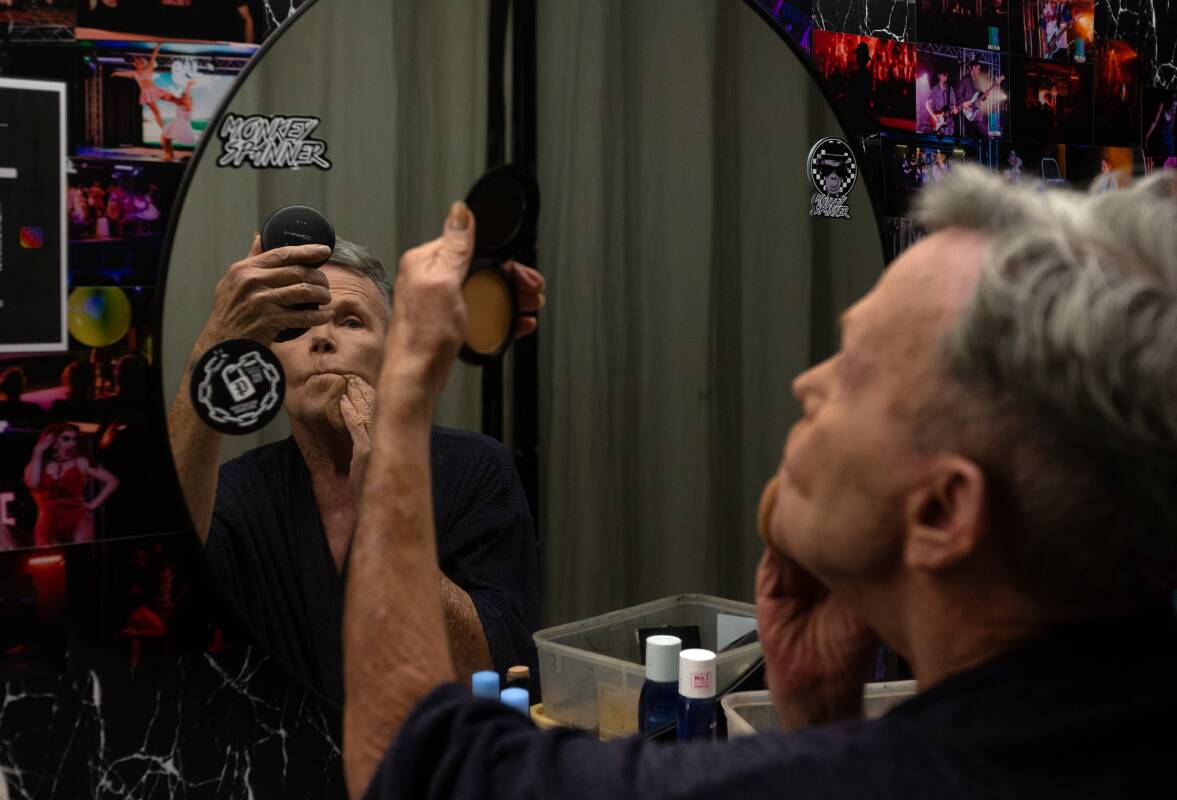

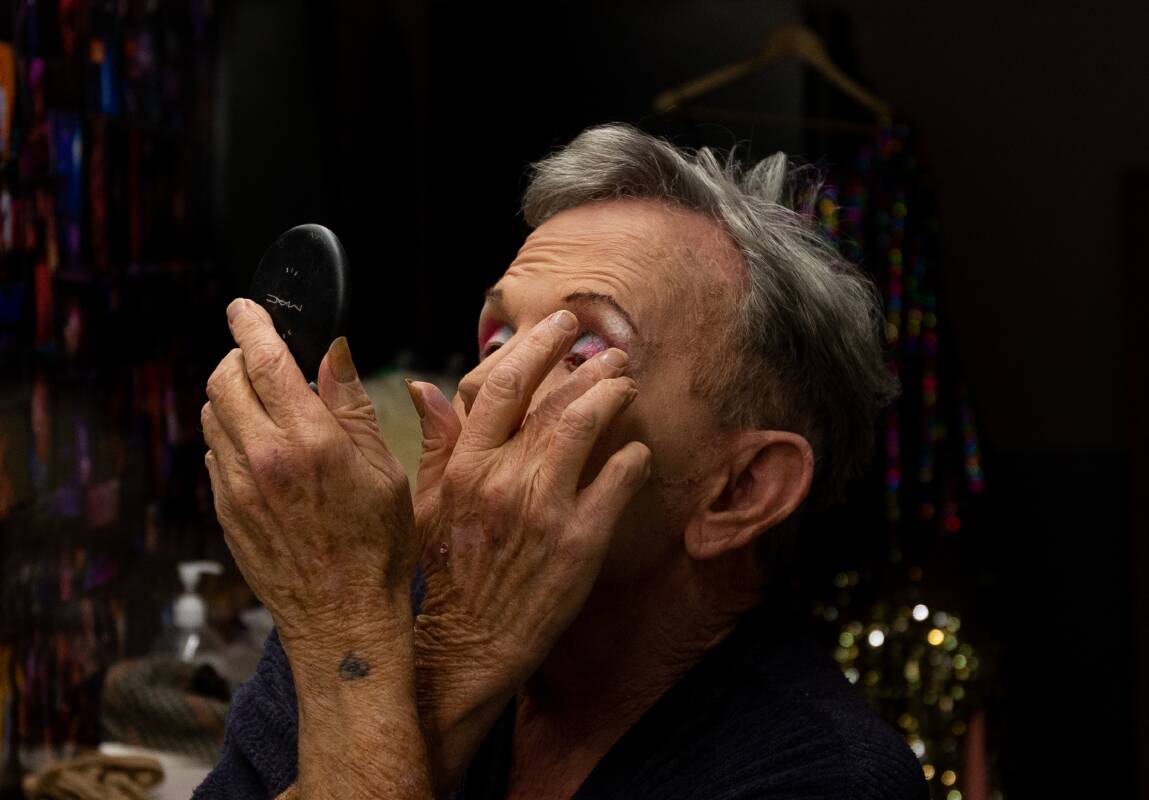
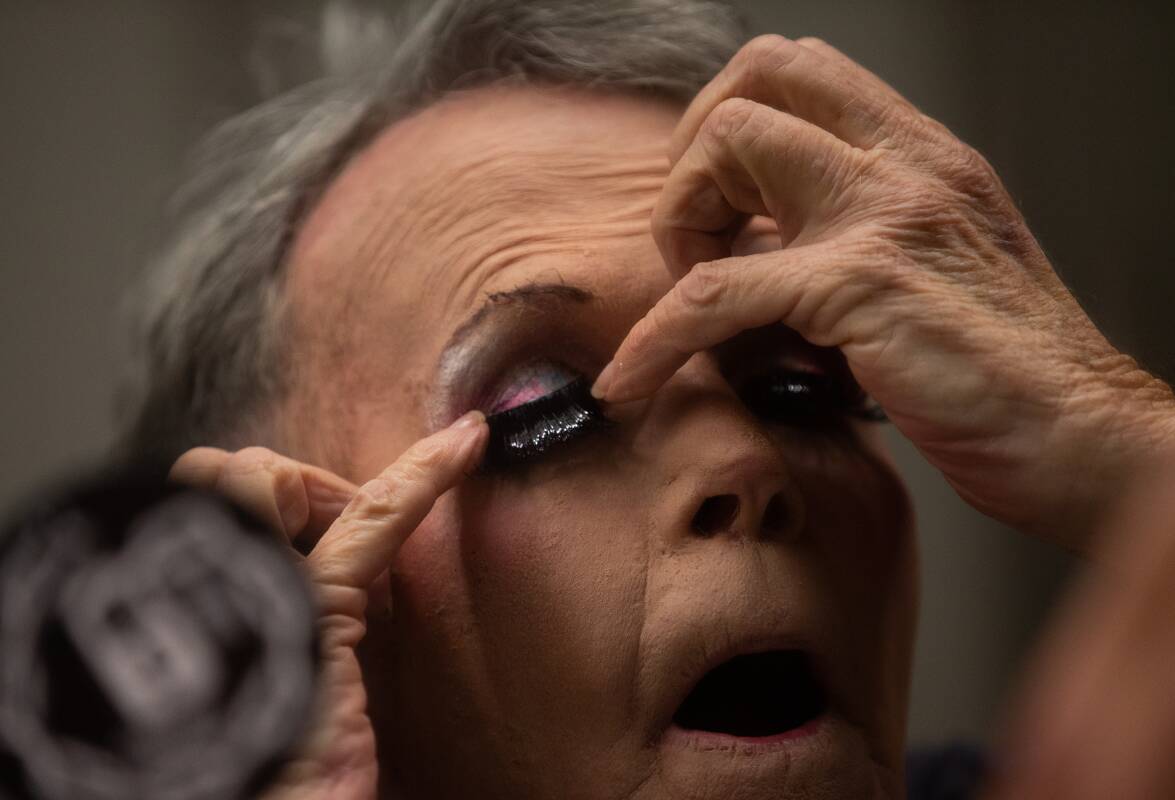

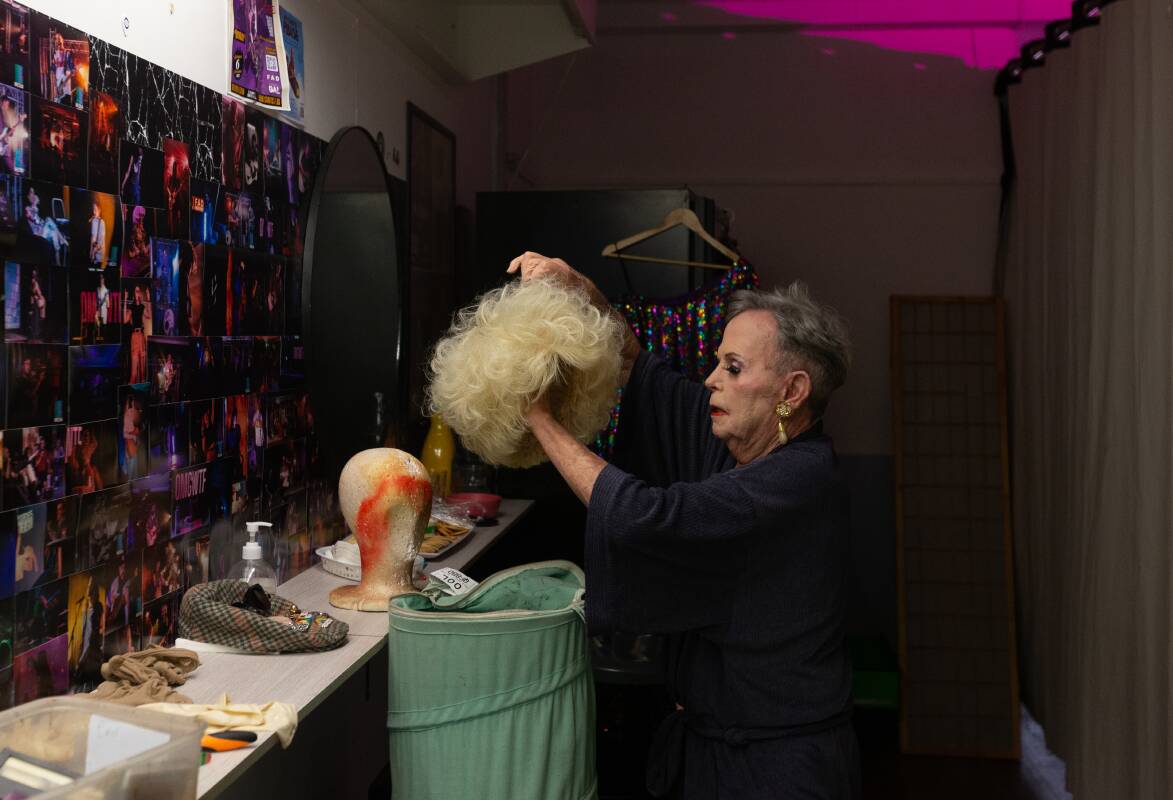

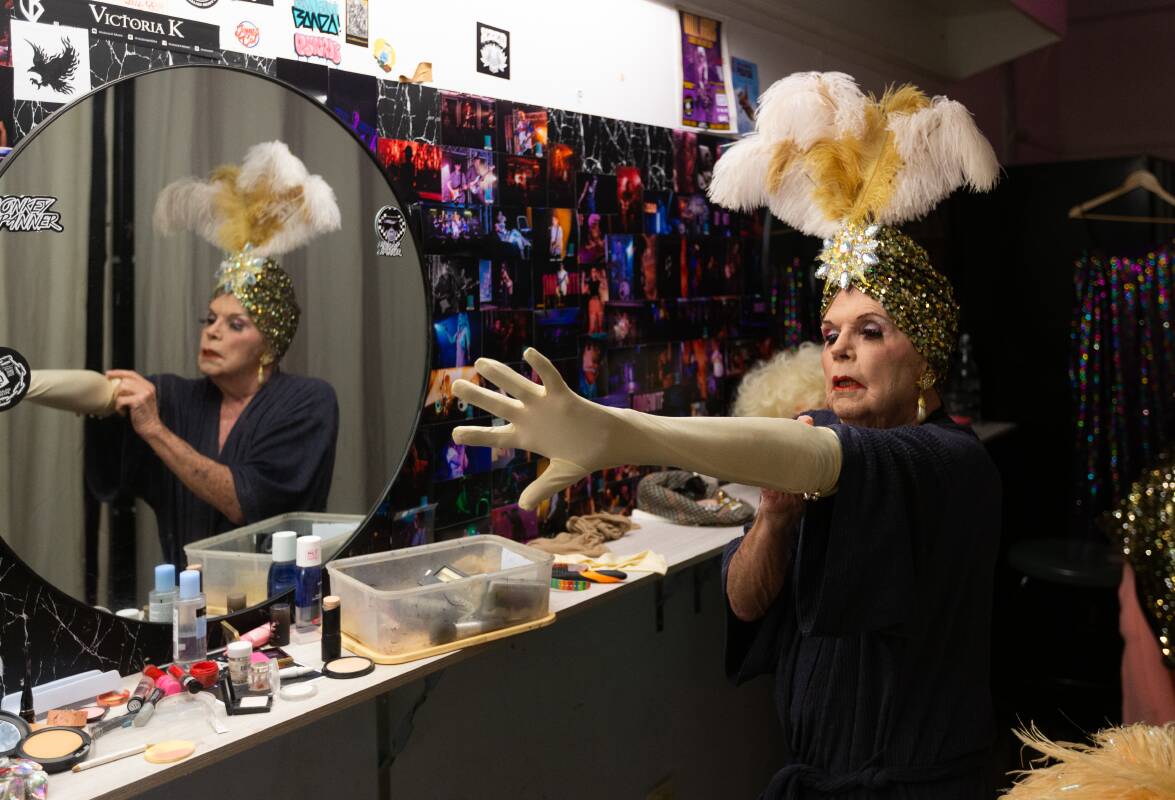
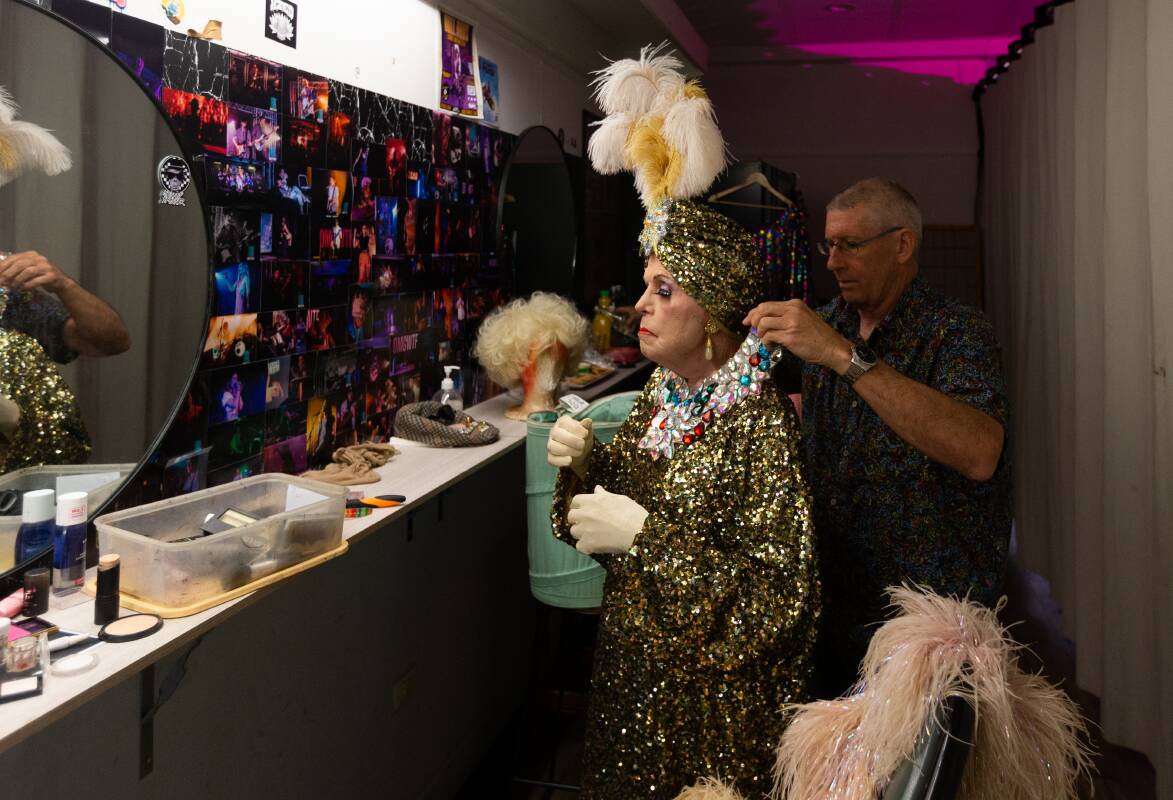
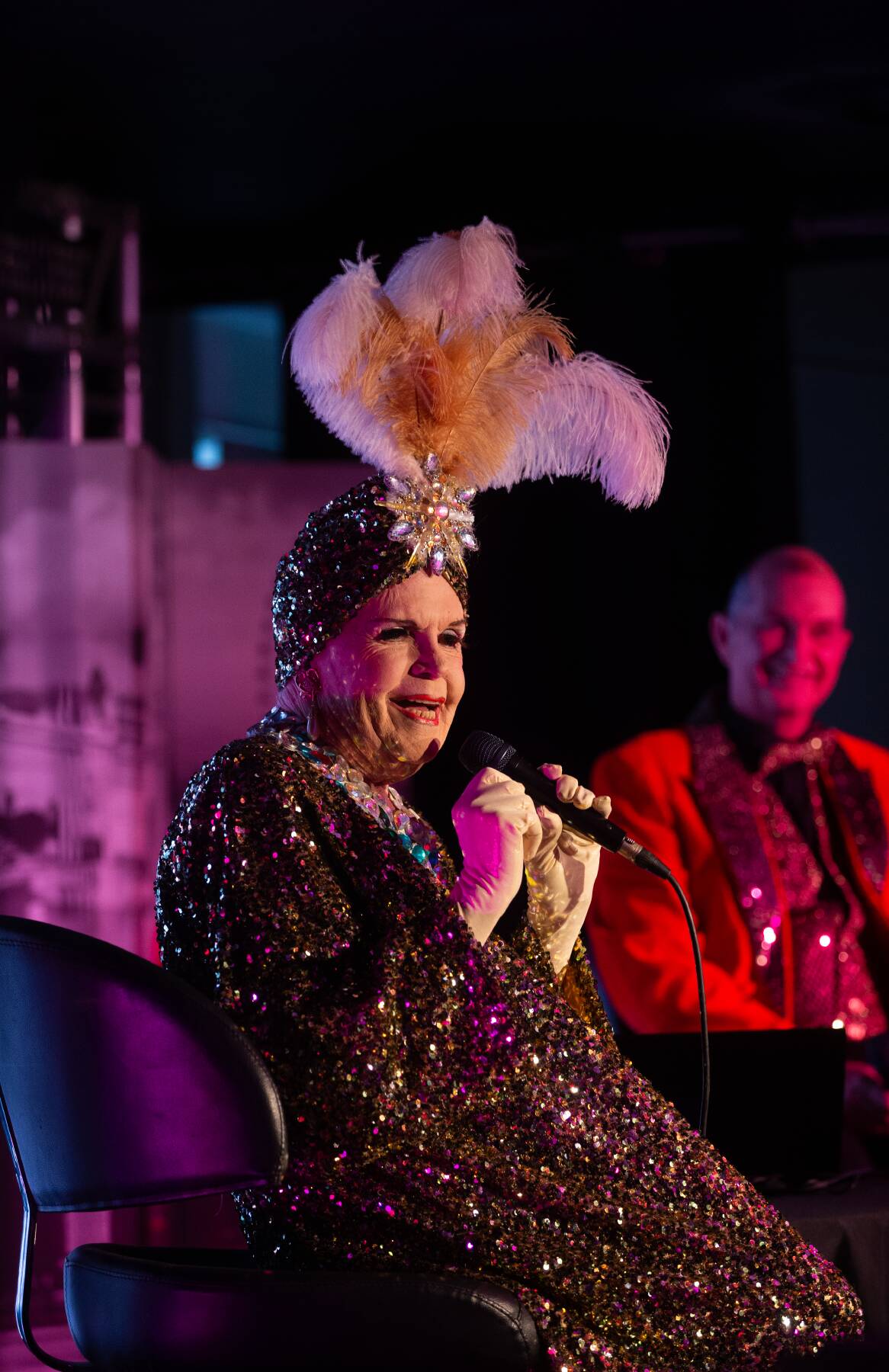
More than 60 years after he first hit the stage in drag, Stan Munro was in star mode.
Munro performed at the Gallipoli Club in Hamilton on a recent Saturday, sitting down for an interview with friend and co-star Kevin Markwell. During the show, more than 100 of his personal photos taken during his career are projected onto a screen. He also performs a few songs, one by lipsync and two others on his own.
The show's title: Vintage Drag in Mint Condition.
Munro was one of the original cast members of Les Girls along with Carlotta in 1963 in Sydney. He's performed in Hong Kong, UK, and even the notorious KitKat nightclub in Beirut.
It takes Munro about 90 minutes to prepare for a show, perhaps not that unusual for a drag queen, starting with a close shave, then putting on makeup and finally his outfit and wig or headpiece. "He doesn't like to be rushed," his friend Markwell says.
The no-holds barred conversation covers a lot of territory, including bashings, police entrapment, conversion therapy, and his three movies (including Alvin Purple).
Munro and Monique St John used to "moonlight" in Newcastle in the 1960s, playing three shows here on a Sunday before heading back to Sydney for their regular engagement at Kings Cross. Munro compered a variety show at the Wangi Workers Club for a couple of years.
"Munro has always appreciated the artistry of Ru Paul-style drag, but his style has always been more understated in keeping with the 'female impersonator' style or as Courtney Act would call it, 'gender illusionist'," Markwell says.
Markwell is the first to admit times have changed since Munro started performing.
"In terms of acceptance, yes it's come a huge way than when Stan was first starting off," he says. "He was entrapped by police. He was forced to undergo a form of conversion therapy involving painful injections of male hormone into his spine.
"But he rarely encountered hostility when he was performing. And, of course, today there are many LGBT people represented positively in popular culture and drag has certainly made its way into the mainstream.
"But it can still be difficult for young people even today to come out to their families."







